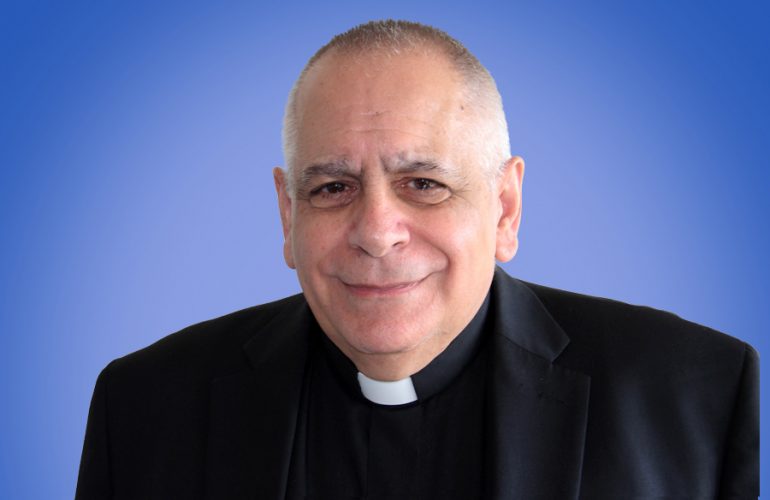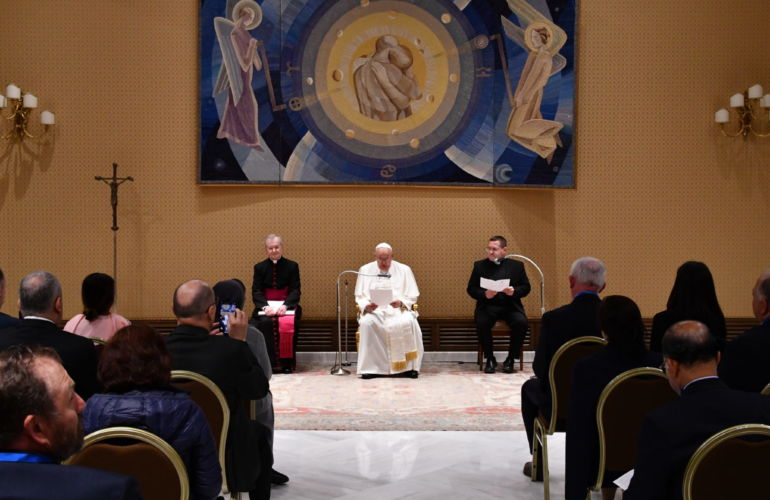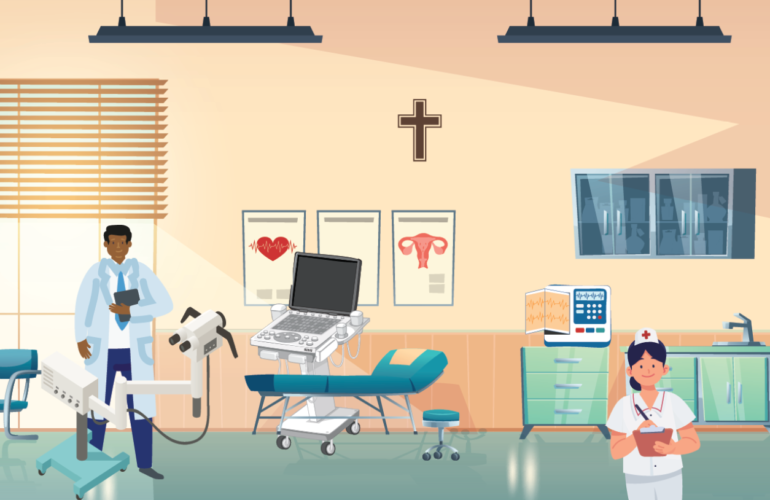Reflections on a Third Visit to Ukraine Torn Apart by Invasion and War -16/10
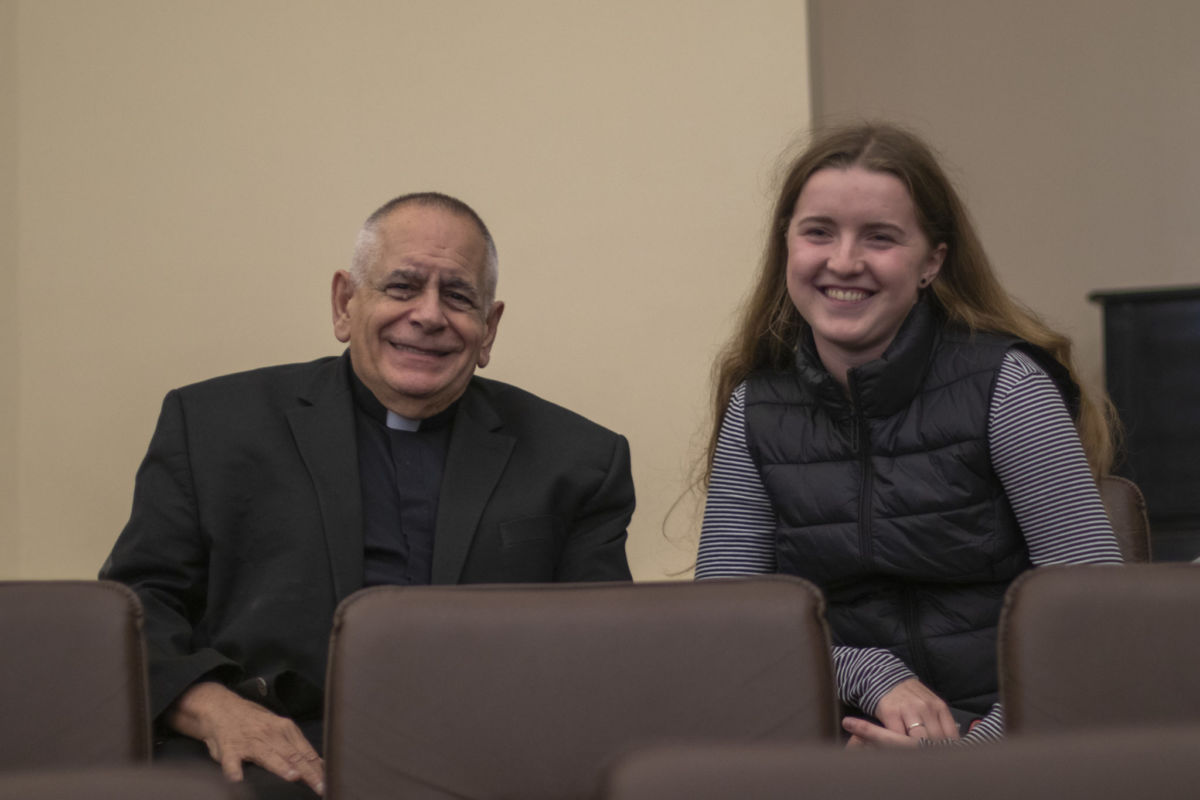
16 October 2023
Our group on this “pilgrimage of solidarity”, Mr. Yuriy Maletskiy, Head of the Knights of Columbus in Ukraine, Mr. Christian Kostko, manager of ICMC projects in Ukraine, and myself, Msgr. Robert J. Vitillo, Secretary General of the International Catholic Migration Commission (ICMC), started our journey today in Krakow, Poland, by meeting with the Heads of the Knights of Columbus in Poland and in Ukraine. Both these men have been working tirelessly to bring the solidarity of this Catholic-inspired fraternal organizations to the Ukrainian people since its massive invasion and constant attacks for the past 20 Months. They distribute their aid and moral and social support through parish-based Councils throughout the country of Ukraine.
The aid comes from Poland, the USA, and other parts of the world. We spoke of the need to support widows and orphans – it seems quaint, almost biblical to speak of these groups, but as of October 10, 2023, almost 28,000 Ukrainians have lost their lives in this war, and with almost 1,000 of these deaths among children. They also noted the need of spiritual support for the people and support for the caregivers, the priests, religious women and men, and laypersons who are laboring in the parishes and serving all in need without any regard of their faith affiliation or lack thereof.
On the long drive from Krakow to the Ukrainian border, we spoke with Fr. Bilski of Beryslav – his parish church has been adapted to feed hundreds of people every day – he is located in the area of constant shelling and the hospital next door to his church was recently bombed and his church also sustained damage. All this despite the fact that control of this area has been retaken by the Ukrainian military. We are planning to spend time with this priest later this week, but upon ending the conversation, we humorously promised to be in touch before our arrival – and he said – “yes, let’s stay in touch – if we are still alive at that time!”
After 3 hours of waiting at the border with constant checks of our passports and the car in which we were riding, there was no doubt about entering a country in war. There were hundreds of men – young and old! – reporting for military duty and dragging many heavy packs and packages – their faces were lined with worry and separation from their families and, again, uncertainty about survival.
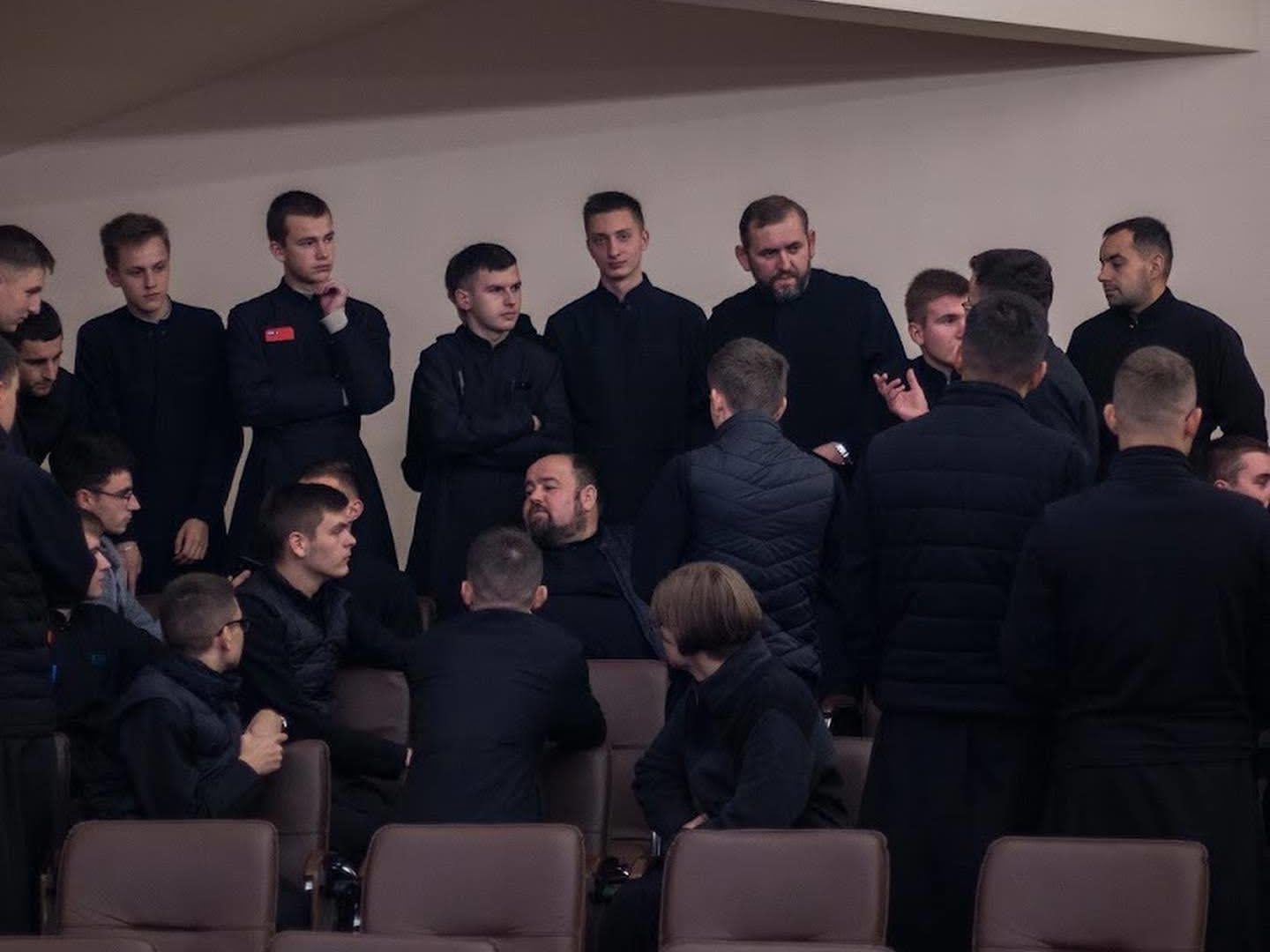
The flags flying outside homes also reminded us of the war. Many of the blue and yellow official Ukrainian flags were accompanied by black and red flags. The Ukrainian people say that their official flags turn black and red when stained with the blood of the victims of war. Another evidence of the state of ongoing war is the fact that all the church and public monuments are surrounded with sandbags – I even saw one building with sandbags outside the basement windows, presumably to prevent bombs from entering the shelters which exist in almost every Ukrainian public building and church these days, as well as in the basement of homes.
Upon arrival in Lviv, we raced to the Greek Catholic seminary for an opening cycle of training sessions for the young men preparing for ordination as priests – the first training, which took place in all the Greek and Latin Catholic Church seminaries in the country, was supported by the generous donors to the International Catholic Migration Commission and has focused on mental health and psychosocial assistance which is so much needed by so many people in this country who have experienced so much loss of life, property, security and hope for the future in what Pope Francis so often calls and prays for “our martyred Ukraine.” The seminarians will face many such needs as they begin to minister to the people – in the parishes where they will be assigned. Many Ukrainians – both Catholic and people of other faiths go to the priests for help in times of distress and emergencies – they say they are in spiritual distress – but many also have underlying emotional problems – with depression, substance abuse, relationship problems, and general feelings of hopelessness. Priests are trained to give pastoral, spiritual, and even social support but also need to be able to recognize deeper-seated emotional problems and refer their people to mental health professionals. They need to assure people that they are not “crazy” but simply need to explore their feelings, and learn how to live with the stress, and get in touch with their inner strengths, talents, and resilience.
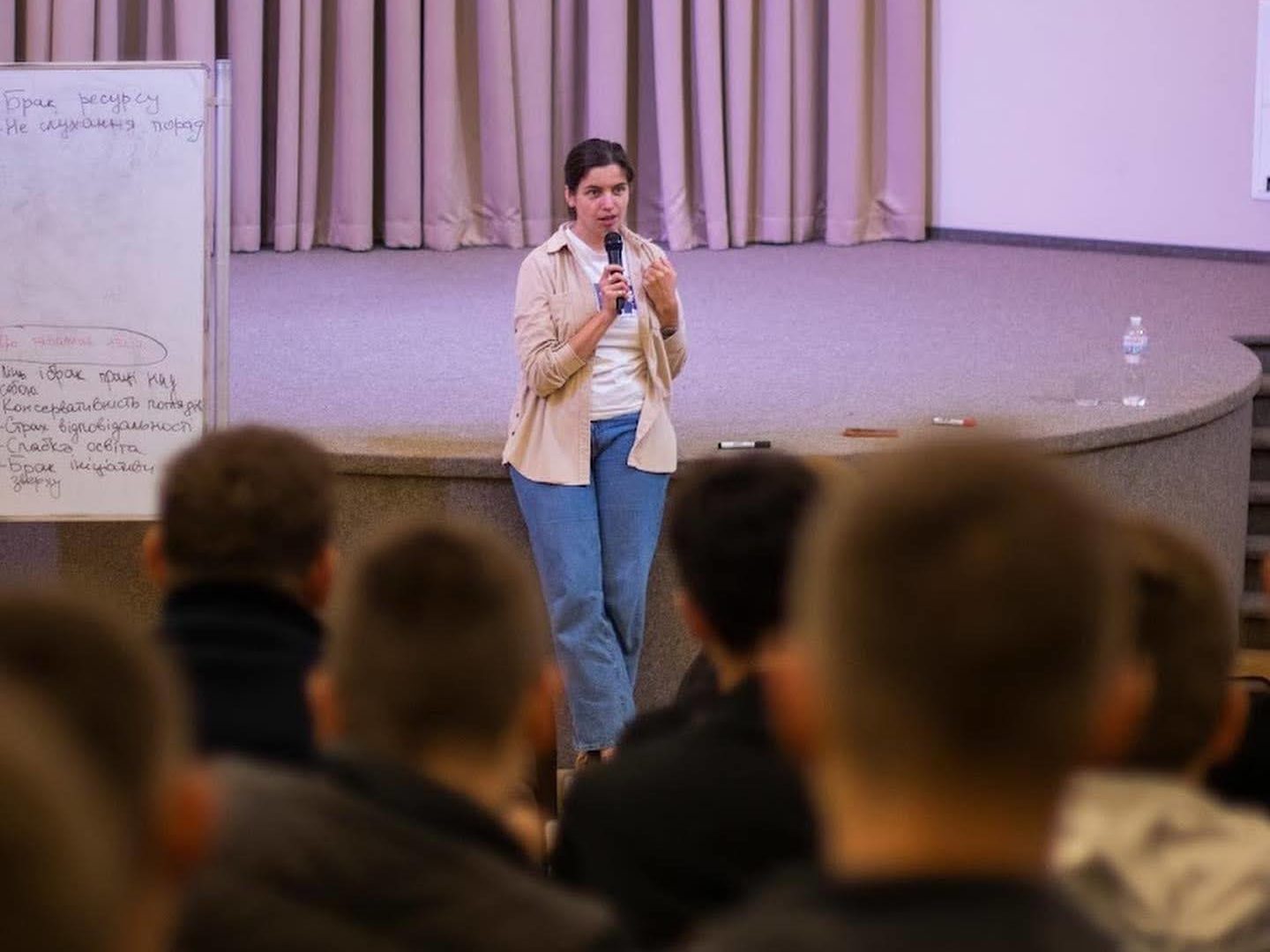
The focus of this evening’s session at the seminary was the beginning of a second cycle of this ICMC-supported training for Catholic-Church ministers in Ukraine. I watched more than one hundred smiling, but rather nervous young men file into the lecture hall – but this was far from a dry or boring or passive lecture. The “professor” was a young woman psychologist who actively engaged the seminarians in their preparedness for facing such problems with the faithful people whom they would be serving. She encouraged them to know themselves first (that was one of the first principles I learned from studying philosophy and later from studying clinical social work: “Know Yourself,” which goes back to ancient Greek philosophers including Plato and Socrates, and then was taken up by Catholic theologians, including St. Augustine and St. Thomas Aquinas. The seminarians did not yawn or look at their smartphones. They seemed spellbound as the woman psychologist spoke of the inner resources that they need to identify in themselves, the self-care that they need to offer themselves, and the ups and downs that they need to admit to themselves if they want to help others with spiritual care and good advice about seeking professional mental health care should that become necessary. The seminarians offered her a long ovation and many smiles and expressions of gratitude. It made me forget the fact that I had not eaten since breakfast, that my stomach had stopped growling, and that exhaustion was no longer coming over me in waves – it simply made me grateful that ICMC and our generous donors could play a small part in preparing these future priests for service.
